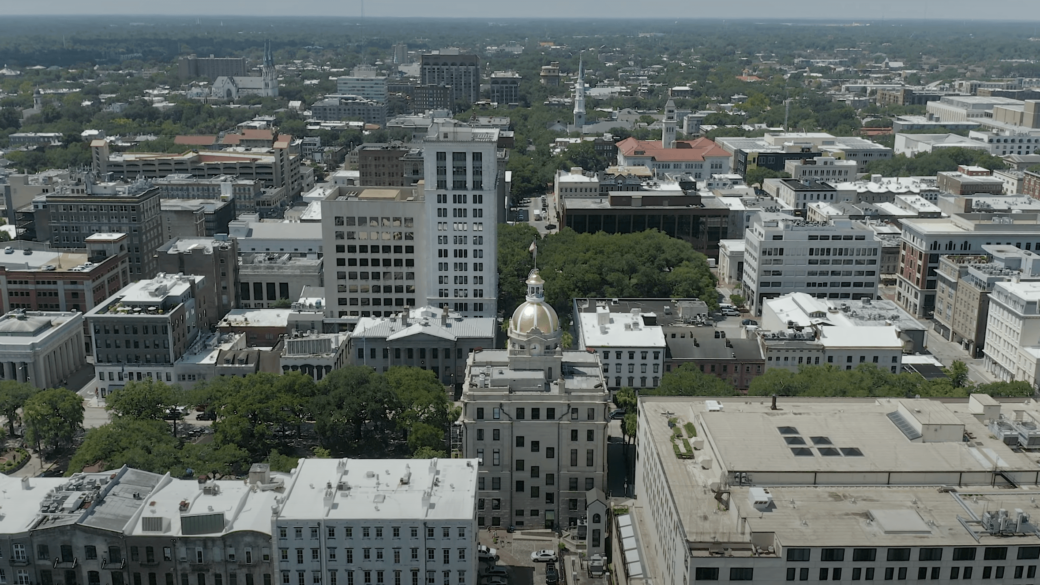Reasons Not to Move to Savannah
Savannah is celebrated for its warm Southern hospitality and historical charm. However, any location has its own challenges that should not be ignored. This article aims to shed light on the 14 reasons not to move to Savannah. Anyone considering moving there must consider both the pros and cons.
Let’s delve into the reasons why Savannah might not be the ideal fit for everyone, providing a balanced view to help in making an informed decision.
14. High Humidity and Heat
Savannah has high humidity and heat, especially in the summer. For people from temperate climates, this can be a significant deterrent. High temperatures and humidity reduce comfort and raise energy bills due to air conditioning needs.
This weather can also worsen asthma and other respiratory issues. For outdoor enthusiasts, oppressive heat can make enjoyable activities difficult.
13. The Bug Issue
The warm, humid climate in Savannah breeds mosquitoes and gnats. In addition to being a nuisance, these pests can spread diseases like West Nile and Zika.
These bugs also affect outdoor quality of life and require ongoing pest control in homes and public spaces. This increases resident costs and requires constant vigilance, especially in the summer.
12. Tourist Congestion
Millions of tourists visit Savannah annually. Tourism boosts the local economy, but it can increase crowding in popular areas like downtown.
Locals face traffic, parking shortages, and restaurant and other wait times. Locals may struggle to go about their daily lives due to the influx of tourists.
11. Limited Public Transportation
Public transportation in Savannah is less developed than in other cities. Due to limited public transit, residents rely heavily on cars. Those without cars or who do not drive may find the limited public transportation network inconvenient.
It also contributes to traffic congestion and environmental concerns, as more cars on the road mean increased emissions. So, moving to Savannah without a car could make it difficult to navigate.
10. Hurricane Risk
The Georgia coast makes Savannah vulnerable to hurricanes and tropical storms. These natural events threaten life and property and make emergency preparation difficult.
Residents must evacuate, protect their homes, and deal with power outages, property damage, and service disruptions. Hurricane preparation and recovery can be emotionally and financially draining, making it a relevant factor for potential residents.
9. High Cost of Living in Desirable Areas
The Historic District and other desirable Savannah neighborhoods have high costs of living. Due to their popularity and history, these areas have high property and rent prices. This can be difficult for budget-conscious families.
Social stratification can result from the city’s cost of living, as only the wealthy can afford these picturesque neighborhoods, leaving others with fewer options.
8. Limited Job Market in Certain Sectors
Savannah has a strong tourism industry, but other jobs are scarce. This can be a major drawback for tech, science, and corporate professionals.
The local economy’s focus on the hospitality and service industries limits career opportunities outside these sectors. The limited job market in Savannah may discourage people and families whose careers do not fit the dominant industries.
7. Allergens and Pollen
Savannah’s lush vegetation increases pollen and allergens, especially in spring. People with allergies or respiratory issues may have issues. Precautions are needed because high pollen counts can cause discomfort and health issues.
For allergen-sensitive people, Savannah is not ideal because this can affect their daily lives.
6. Crime Rates
Savannah has neighborhoods with high crime rates, like many cities. Though the city has many safe areas, crime in some areas can worry residents.
The need for increased security and safety anxiety can lower the quality of life. Potential residents must carefully consider neighborhood safety and identify high-risk areas.
5. Education System Challenges
Savannah public schools face challenges. Test scores and graduation rates in some schools are below the national average, raising concerns about resource allocation and teacher quality.
Limitations in the local school system can be a major drawback for families with children who value education quality. Private and charter schools may not be feasible for everyone due to their higher costs.
4. Limited Cultural Diversity
Savannah, though culturally rich, lacks the diversity of larger, more cosmopolitan cities. Limited cultural diversity can have an impact on social interactions, working environments, cultural events, and cuisine. This may make Savannah less appealing to those who thrive in a more diverse environment.
3. Seasonal Allergies
Besides the allergens mentioned, Savannah has seasonal allergies. The beautiful greenery in the city concentrates seasonal allergens, making allergy sufferers uncomfortable.
Seasonal allergies may have an impact on residents’ health and quality of life, necessitating additional medications or safety measures for a significant portion of the year.
2. Traffic and Infrastructure Issues
Savannah’s infrastructure, especially in older areas, struggles to serve residents and tourists. Traffic can be bad during peak tourist seasons and rush hours.
While charming, the city’s historic streets and squares do not always facilitate modern traffic. Residents who frequently navigate these areas may be frustrated and waste time.
1. Flooding and Drainage Problems
The biggest reason not to move to Savannah, Georgia is its flooding and drainage problems. The city floods easily during heavy rains and storms due to its low coastal location. Inadequate drainage systems in some areas cause waterlogged streets and properties.
The immediate inconvenience can lead to long-term damage and property value loss. Flooding prevention is important before moving to Savannah due to the cost and effort involved and the risk of water damage.
Conclusion
This concludes our comprehensive look at Savannah’s drawbacks. All of the points have been thoughtfully considered to provide potential residents of this historic city with an accurate and well-rounded perspective.

